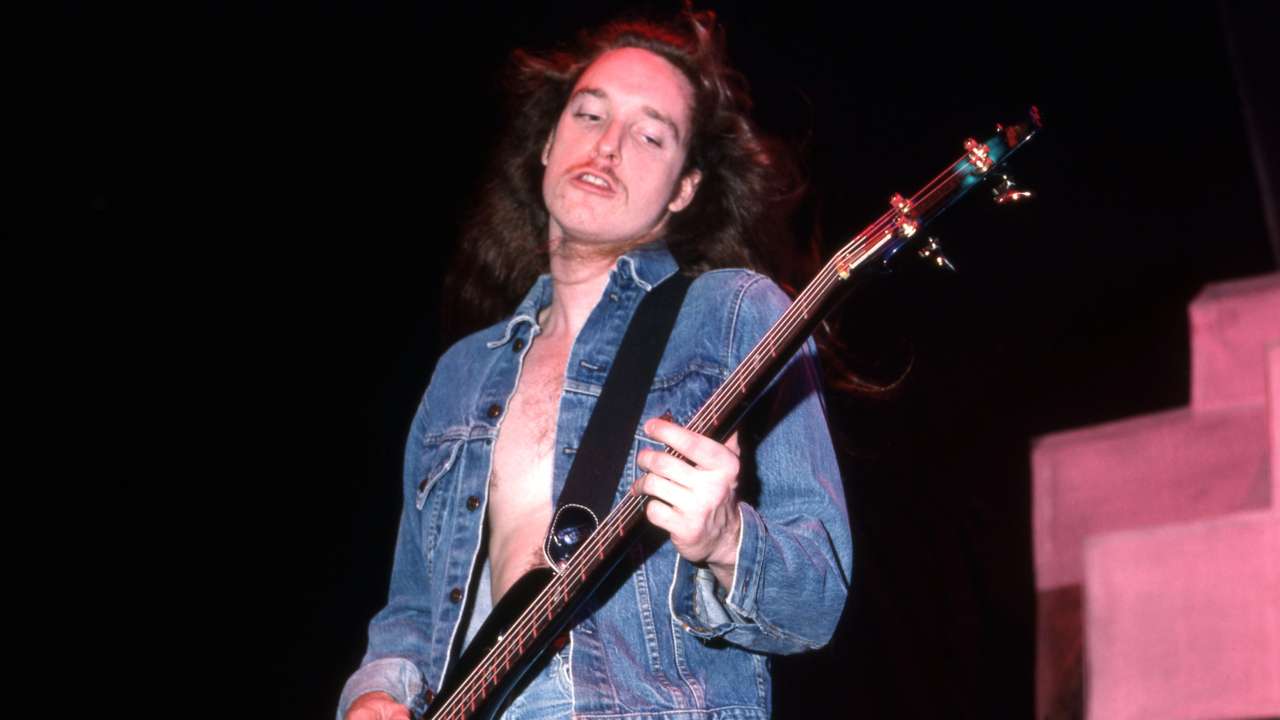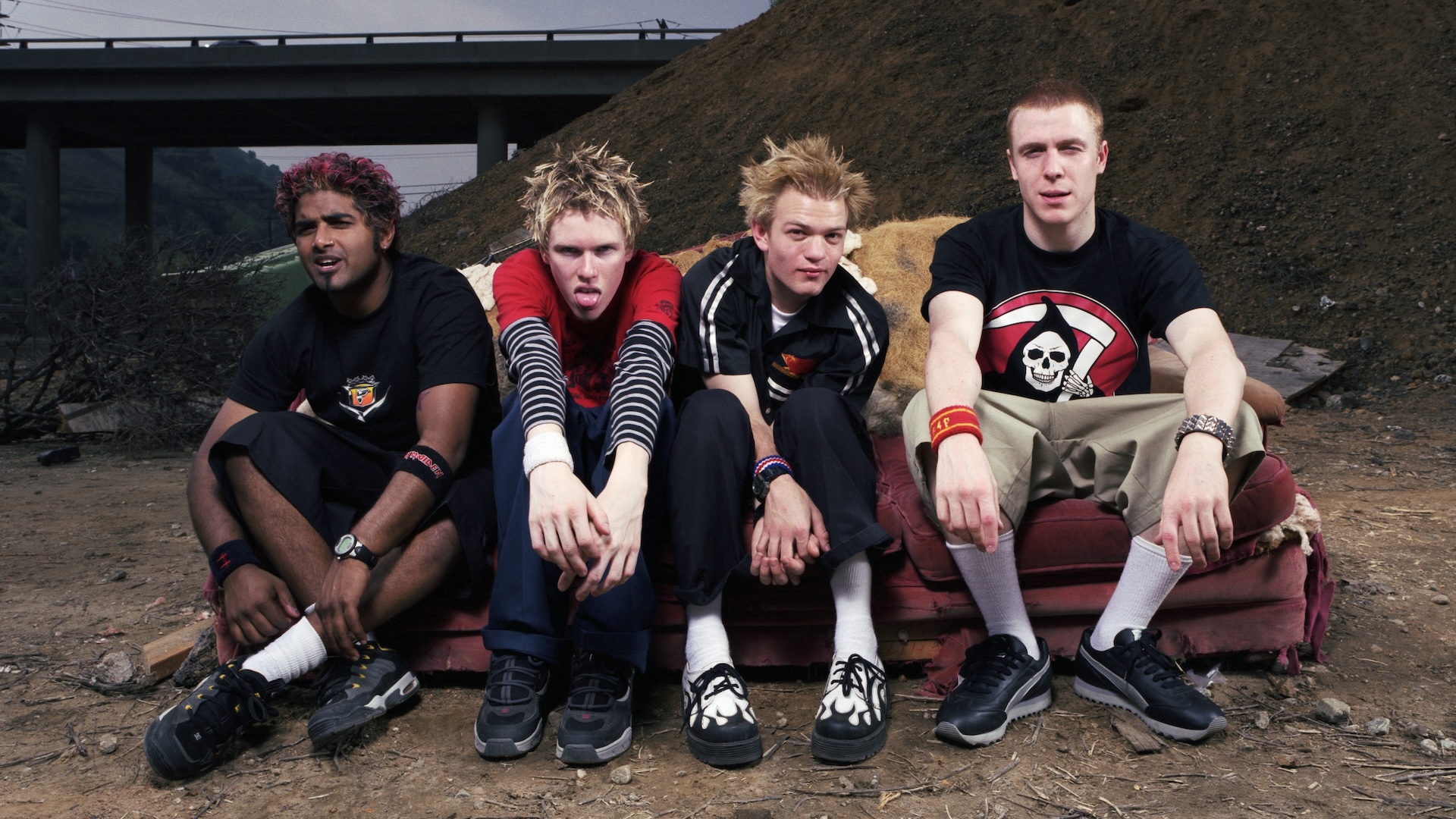The isolated bass track from Metallica’s Orion proves that Cliff Burton was a master of his instrument
Orion without guitars and drums is still a majestic experience. That’s how incredible Cliff Burton was.

Select the newsletters you’d like to receive. Then, add your email to sign up.
You are now subscribed
Your newsletter sign-up was successful
Want to add more newsletters?

Every Friday
Louder
Louder’s weekly newsletter is jam-packed with the team’s personal highlights from the last seven days, including features, breaking news, reviews and tons of juicy exclusives from the world of alternative music.

Every Friday
Classic Rock
The Classic Rock newsletter is an essential read for the discerning rock fan. Every week we bring you the news, reviews and the very best features and interviews from our extensive archive. Written by rock fans for rock fans.

Every Friday
Metal Hammer
For the last four decades Metal Hammer has been the world’s greatest metal magazine. Created by metalheads for metalheads, ‘Hammer takes you behind the scenes, closer to the action, and nearer to the bands that you love the most.

Every Friday
Prog
The Prog newsletter brings you the very best of Prog Magazine and our website, every Friday. We'll deliver you the very latest news from the Prog universe, informative features and archive material from Prog’s impressive vault.
38 years since his passing, Cliff Burton has become one of metal’s most mythologised figures. The majority of Metallica fans were either not born yet or not initiated yet when the bassist sadly passed, but he’s still idolised by everybody that’s heard his songs and performances since. That’s how remarkable he was.
Cliff joined Metallica in 1982, following the blink-and-you’ll-miss-it tenure of predecessor Ron McGovney, when he wowed his future bandmates with his technical prowess and commanding presence during a Trauma concert. The bassist swiftly became a cornerstone of the band: not just an onstage hellraiser, but the only member of Metallica’s “classic” lineup – also composed of James Hetfield, Lars Ulrich and Kirk Hammett – to have a genuine education in music.
As a result – especially on Metallica’s second and third albums, Ride The Lightning and Master Of Puppets – many of the songs with Cliff’s co-writing credit became sweeping, dynamic compositions. They include such intricate and emotional triumphs as Fade To Black, The Call Of Ktulu and, of course, Master Of Puppets’ title track. However, it’s Master… instrumental Orion that’s most frequently hailed as the red-haired headbanger’s magnum opus, and a listen to the suite’s isolated bass track (embedded below) makes a compelling case that the song deserves the honour.
The bass of Orion sounds like a graceful, eight-and-a-half-minute solo by itself. The track starts as a wash of rumbling noise, before Cliff bursts into a hefty rhythm riff, accompanying the one that guitarists James and Kirk played at the full thing’s outset. The bassist then leaps into a gritty lead line, distortion ramped up to 11 as he reaches for the higher end of his fretboard. It’s a ‘lead bass’ style that’s still hailed as innovative almost 40 years later, yet so few metal players over that time have convincingly recreated it and made it a part of their repertoire.
Midway through, Orion breaks apart, and Cliff flaunts a more evocative side with a downtrodden melody worthy of a funeral dirge. The riff gradually escalates, note after note slowly added in, until it reaches another grungy crescendo. Cliff smacks multiple strings, echoing heavy metal hero Lemmy Kilmister, then picks a squealing high note that, to this day, many mistake for a Kirk Hammett guitar solo on the track proper.
By the time Cliff hits Orion’s chunky closing part, it’s easy to understand why this song is hailed as the greatest achievement of the man’s all-too-brief life. Barely six months after Master Of Puppets was released and put the entire metal world on notice, the bassist died in a tragic bus crash mid-tour. Thus, metal lost one of its most gifted songwriters aged only 24, and – although Metallica continued with Jason Newsted, then Robert Trujillo – nobody’s quite been able fit in the shadow Cliff continues to cast.
Sign up below to get the latest from Metal Hammer, plus exclusive special offers, direct to your inbox!

Louder’s resident Gojira obsessive was still at uni when he joined the team in 2017. Since then, Matt’s become a regular in Metal Hammer and Prog, at his happiest when interviewing the most forward-thinking artists heavy music can muster. He’s got bylines in The Guardian, The Telegraph, The Independent, NME and many others, too. When he’s not writing, you’ll probably find him skydiving, scuba diving or coasteering.
